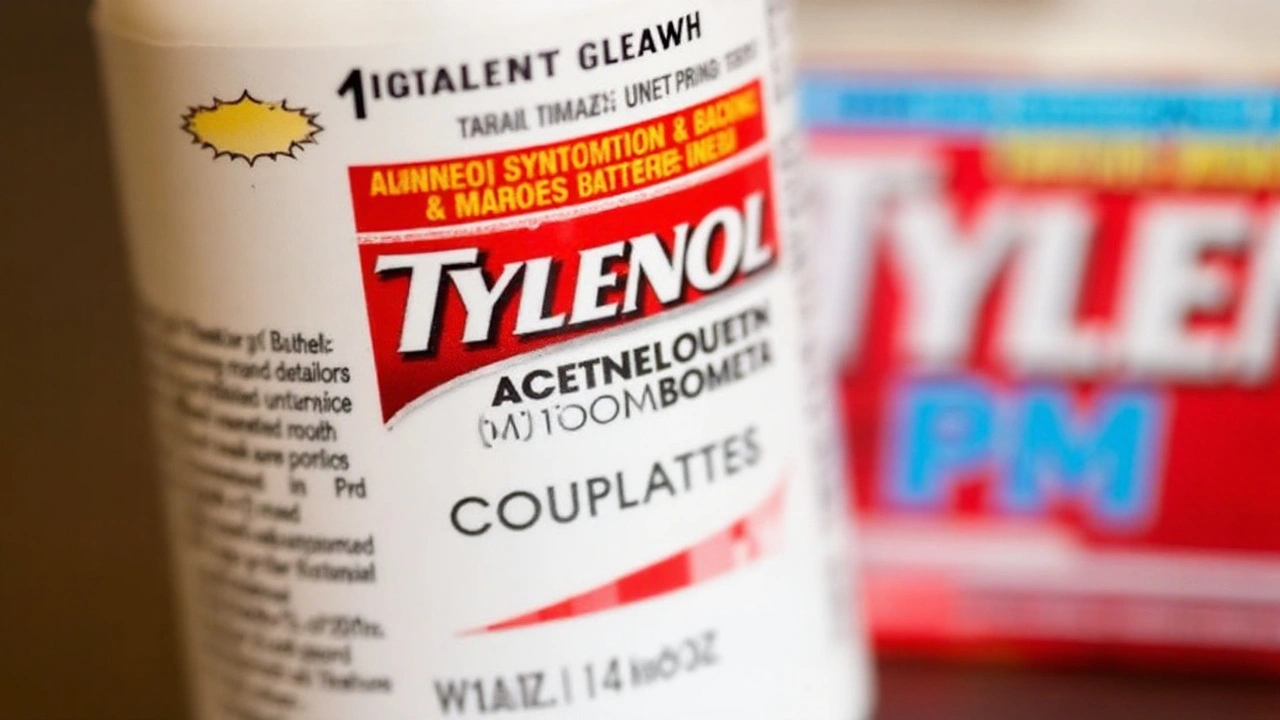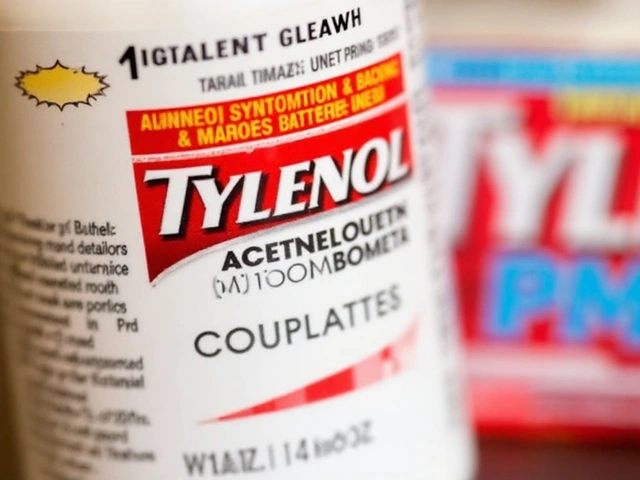Shares of Kenvue, the Johnson & Johnson spinoff that owns the Tylenol brand, rallied after a sharp sell‑off triggered by a controversial statement from the White House. President Trump, alongside Health Secretary Robert F. Kennedy Jr. and CMS chief Mehmet Oz, announced that the pain reliever acetaminophen might be a "very big factor" in the development of autism when taken during pregnancy. The claim was billed as one of the biggest medical breakthroughs in U.S. history.
Trump administration’s autism‑acetaminophen announcement
During a Monday afternoon event at the White House, officials suggested that new research linked prenatal acetaminophen exposure to childhood autism. The rhetoric was dramatic – Trump said they had finally found "an answer to autism." Kennedy, who has a history of promoting unverified autism theories, vowed to pinpoint the cause by September, despite the broader scientific community’s agreement that autism does not have a single, identifiable trigger.
The announcement reignited a long‑standing debate that has periodically surfaced in medical journals and media reports. While some observational studies have hinted at a possible association, leading health agencies such as the FDA, CDC, and WHO continue to endorse acetaminophen as the safest over‑the‑counter pain reliever for pregnant women when used as directed. No regulatory body has issued a formal warning linking the drug to autism.

Kenvue’s swift rebuttal and market reaction
Within hours, Kenvue issued a strong statement rejecting the administration’s assertions. The company highlighted that “acetaminophen is the safest pain reliever option for pregnant women as needed throughout their entire pregnancy” and that “rigorous research, endorsed by leading medical professionals and global health regulators, confirms there is no credible evidence linking acetaminophen to autism.”
Investors initially reacted by pushing the stock down more than 5% on Monday, adding to a six‑month slide of roughly 25% that had already weighed on the company amid lingering speculation. However, the market quickly digested Kenvue’s defense, and the shares recovered, stabilising above the opening price by the close of trading.
Analysts note that the rebound reflects confidence in Kenvue’s defensive posture and the sheer financial importance of Tylenol. The brand accounts for about 42% of the company’s total revenue, anchoring its self‑care segment. With the product line firmly entrenched in pharmacies and households worldwide, short‑term sentiment spikes tend to smooth out unless a regulatory action directly curtails sales.
While the episode has stoked fresh public debate, the consensus among doctors remains unchanged: acetaminophen, when taken at recommended doses, poses no proven risk for autism. Kenvue has pledged to monitor the situation closely, continue supporting independent research, and protect its flagship product from misinformation that could harm both consumers and shareholders.








John McDonald
September 24, 2025 AT 18:01Despite the turbulent headlines, the equity valuation of Kenvue remains anchored by robust cash‑flow generation and the entrenched market share of its flagship analgesic portfolio; the recent price rebound is a textbook illustration of risk‑adjusted return re‑equilibration in the face of transient sentiment shock; investors can capitalize on the beta‑adjusted upside by employing a disciplined position sizing algorithm that accounts for macro‑level policy volatility and sector‑specific regulatory elasticity; the underlying fundamentals, including EBITDA margin expansion and strategic pipeline diversification, provide a compelling risk‑reward asymmetry that justifies a bullish stance in a mean‑reversion framework.
Jordyn Wade
September 29, 2025 AT 09:08It is remarkable how quickly market participants can pivot from panic to optimism when a reputable corporation mounts a well‑crafted rebuttal to politically charged narratives the initial sell‑off reflected collective cognitive bias towards authority‑driven statements the subsequent rally demonstrated the elasticity of investor confidence underpinned by historical performance data the press release from the company included citations of peer‑reviewed studies reinforcing the safety profile of the medication the analysts’ consensus highlighted the disproportionate weighting of short‑term sentiment against long‑term revenue streams the share price trajectory illustrated a classic case of over‑reaction followed by correction the underlying fundamentals remain unchanged despite the noise surrounding policy discourse the corporate communication strategy employed precise language to mitigate misinformation the market’s absorption of this narrative underscores the efficiency of price discovery mechanisms the balancing act between regulatory speculation and empirical evidence continues to shape valuation metrics the episode serves as a reminder that macro‑political events can temporarily distort risk premiums but rarely alter intrinsic value the investors who maintain discipline and reference historical volatility stand to benefit the episode also prompted a re‑examination of how media amplification can sway public perception the strategic response by the firm exemplifies crisis communication best practices the financial community rewards entities that demonstrate resilience and transparency in the face of unfounded allegations the broader lesson is that sound fundamentals ultimately outpace transient controversy the future outlook remains positive provided the company sustains its innovation pipeline and market penetration.
Zoe Birnbaum
October 4, 2025 AT 00:15Wow, the market really showed its resilience there – it’s fascinating to see how quickly the narrative can flip once a solid corporate statement lands, and it just goes to show the power of clear communication in calming investor nerves.
Pinki Bhatia
October 8, 2025 AT 15:21I hear you, the sudden shift can feel like a roller‑coaster but it’s reassuring that the brand’s reputation and the scientific consensus keep many of us feeling safer about using trusted medicines.
NARESH KUMAR
October 13, 2025 AT 06:28Great points, John! 🚀 The market’s bounce back really highlights how data‑driven confidence can outweigh headline hype. 📈💡
Purna Chandra
October 17, 2025 AT 21:35Honestly, this whole episode is a textbook example of the deep‑state trying to weaponize the public’s fear of everyday drugs to push a hidden agenda – you can see the strings being pulled from the Oval Office all the way to the pharmacy shelves, and it’s no coincidence that the same voices sowing doubt about vaccines are now hijacking acetaminophen as the next scapegoat in their grand narrative of control.
Ira Indeikina
October 22, 2025 AT 12:41One must contemplate the ontological absurdity of attributing complex neurodevelopmental phenomena to a single over‑the‑counter analgesic, for such reductionist rhetoric betrays a profound epistemic arrogance that undermines genuine scientific discourse.
Shashikiran R
October 27, 2025 AT 02:48People need to stop spreading these wild ideas its not just unscientific its harmful and morallly wrong to sow fear for profit
SURAJ ASHISH
October 31, 2025 AT 17:55Market dynamics are fascinating.